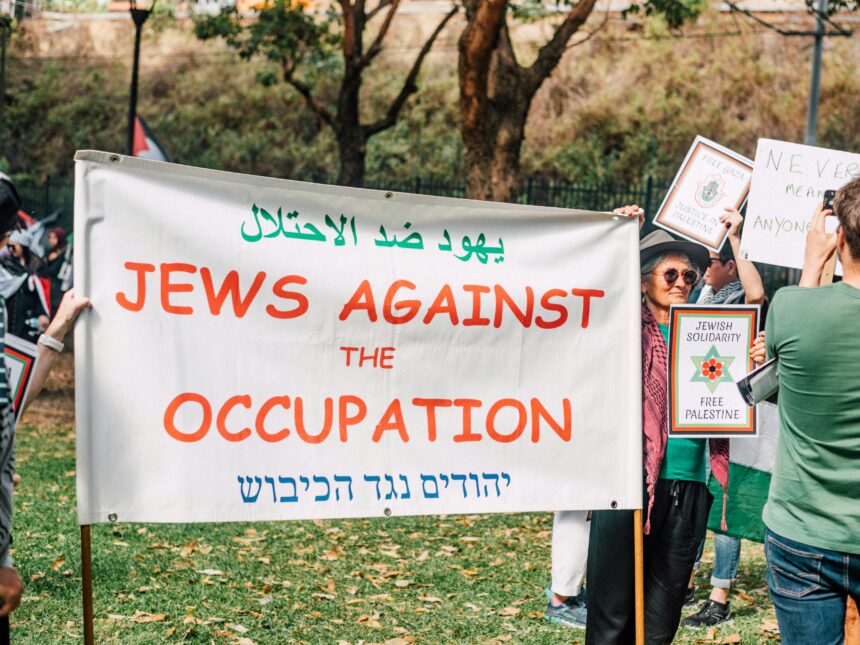Prior to Israel’s unilateral withdrawal from the Gaza Strip in 2005, Jews residing in Gaza and their supporters voiced significant concerns and issued warnings regarding the potential consequences of this withdrawal in a national campaign that included
- – statements to the media,
- – letters and petitions to government officials,
- – public demonstrations and protests,
- – one-to-one meetings in cities and towns, and
- – door-to-door personal engagement.
Their warnings were specific, and closely reflected the actual events that transpired.
They predicted that:
- – Gaza would become a launchpad for future attacks.
- – The withdrawal would empower Hamas.
- – The absence of Israeli forces would create a security vacuum.
These Israelis, who were ultimately expelled from their homes, repeatedly warned that the withdrawal would likely lead to the empowerment of the Hamas Islamic organization. They predicted that the “disengagement” would create a dangerous security vacuum within Gaza, which Hamas would swiftly exploit to consolidate its power and establish a firm grip on the territory.
Furthermore, Gaza’s Jews foresaw that, without an Israeli military presence maintaining a buffer zone, Gaza would inevitably become a launchpad for intensified attacks against Israel, including a significant increase in rocket fire and other forms of warfare. They expressed deep fears about the future security of Israel, believing that removing Jewish communities from Gaza would eliminate a crucial buffer against Islamic aggression.
Predictable and preventable
Events following the expulsion of Gaza’s Jews directly corroborate their pre-withdrawal warnings. Following Israel’s 2005 withdrawal, Hamas violently seized control of the Gaza Strip from the Palestinian Authority in 2007. As Gaza’s Jews had warned, rocket attacks launched from Gaza into Israel experienced a significant surge after Hamas’ takeover, leading to numerous large-scale military conflicts between Israel and Hamas over the ensuing years.
The Simchat Torah attacks, characterized by their unprecedented scale, sophistication, and depth of penetration into Israeli territory, can be viewed as a predictable and preventable vindication of the dangers about which Gaza Jews had so vehemently warned prior to their expulsion in 2005.
Pacifist appeasement contributing to military disasters
These concerns, dismissed in Israeli media as being politically motivated and driven by the Jews’ personal attachment to their homes, were rooted in practical understanding of the reality on the ground and the probability that Hamas would exploit the vacuum created by the Israeli withdrawal.
Thus, the withdrawal contributed to the conditions that enabled the October 7th attacks, as the withdrawal of the IDF and abandonment of the Gaza strip created an environment that was conductive to the military capabilities that facilitated the attacks.
There are historical examples where a policy of appeasement, driven by a desire to avoid conflict and rooted in pacifist sentiments within the populace or political leadership, have directly contributed to military disasters.
Examples include the appeasement of Nazi Germany in the 1930s, the Japanese invasion of Manchuria (1931-1933), and the Italian invasion of Abyssinia (Ethiopia) (1935-1936).
These policies emboldened aggressors and contributed to larger and more devastating military disasters. History teaches that a passive stance in the face of determined aggression can have severe consequences.
Feeding the crocodiles
In the context of the appeasement of Nazi Germany in the late 1930s, Winston Churchill famously used this metaphor: “An appeaser is one who feeds those around him to a crocodile, hoping it will eat him last.”
Churchill meant that appeasing aggressors would not prevent war, but would merely embolden them and delay the inevitable conflict, making it more dangerous in the long run.
Comparing the betrayal of Czechoslovakia and the forced removal of Gaza’s Jewish residents through the lens of the “feeding the crocodiles” metaphor, we see that in both cases, a group of people (Czechoslovakians in the Sudetenland and later the entire nation, and the Jewish residents of Gaza) were abandoned and sacrificed by a larger power or group of powers. The Western powers (Britain and France) had a treaty with Czechoslovakia but ultimately ceded the Sudetenland to Nazi Germany in the Munich Agreement. Similarly, the Jewish residents of Gaza were forcibly removed by their own government that sent them to live there, despite their pleas and warnings.
The Western powers appeased Hitler, hoping to satisfy his demands and avoid a larger war. The Israeli government, in pursuing withdrawal, capitulated to American dictates, even if it meant uprooting its own citizens and leaving others in harm’s way.
The Czechoslovak government and the Sudeten Germans who opposed Nazi annexation were largely ignored in the Munich Agreement. Similarly, the lives, concerns, warnings, and pleadings of the Gaza Jewish residents about the consequences of the withdrawal and the empowerment of Hamas were dismissed, downplayed, or scorned.
By sacrificing a smaller or seemingly less significant group, the larger power hoped to appease a greater threat and secure its own safety. This “strategy” is flawed, as the appetite of the “crocodile” (Nazi Germany or Islam) is rarely satisfied by a single offering, and the betrayer justly becomes the next target.
Israeli pacifist appeasement
The abandonment of the South Lebanese Army (SLA) by Israel in 2000 is another instance comparable to the “feeding the crocodiles” analogy.
Israel had actively supported, armed, trained, and relied on the SLA for over two decades to maintain a security zone in Southern Lebanon and fight against Hezbollah and other groups. The SLA was largely composed of Lebanese citizens who allied with Israel.
When Israel unilaterally withdrew from Southern Lebanon in May 2000 under Prime Minister Ehud Barak, it did so quickly and without an agreement that would secure the safety and future of the SLA. This sudden withdrawal left the SLA vulnerable and exposed.
Similar to the Gaza disengagement, there were warnings from within Israel and from SLA leaders about the potential consequences of a rapid and unconditional withdrawal, including the collapse of the SLA and the empowerment of Hezbollah. These warnings, too, were scorned in Israeli media.
The immediate aftermath of the Israeli withdrawal saw the rapid collapse of the SLA. Hezbollah and local populations overran their positions. Many SLA members were captured, tried for treason by the Lebanese government, and received varying sentences. Around 6,000 SLA members and their families fled to Israel for safety.
Israel’s withdrawal was a victory for Hezbollah, which subsequently increased its power and influence in the region.
Israel’s hasty withdrawal under pressure emboldened Hezbollah and contributed to future conflicts, most notably the 2006 Lebanon War. “Feeding the crocodile” did not lead to long-term security.
The Israeli peace movement, with the “Four Mothers” as a particularly influential force, played a vital role in the lead-up to Israel’s 2000 Lebanon withdrawal. By consistently agitating for withdrawal and manipulating public opinion, they provided the support the government needed to justify Barak’s SLA betrayal.
Did Supporters of the 2005 Gaza Expulsion Facilitate the October 7th Attacks?
Oded Lifshitz was called a “peace activist” and journalist prior to Israel’s Gaza withdrawal in 2005.
He and his wife worked for Road to Recovery, an Israeli organization that helps transport Palestinian citizens in need of medical care to hospitals in Israel. He was a journalist who defended what he called Palestinian rights and advocated for peace throughout his career.
He supported the Gaza withdrawal and expulsion.
Oded Lifshitz was taken hostage during the October 7, 2023 Simchat Torah attacks. His body was returned to Israel in February 2025. His wife, Yocheved, who was released earlier, stated that he had “fought for the Palestinians his whole life.”





